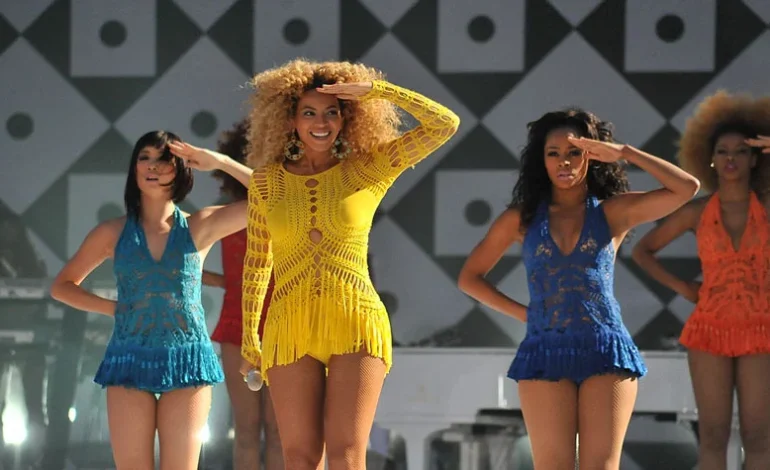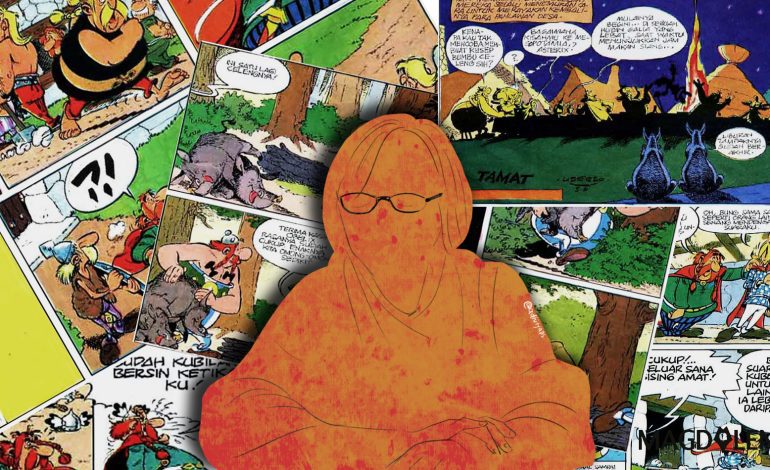Beyoncé was ‘Robbed’ at the Grammys? You’re Missing the Point

When did Beyoncé become the be-all, end-all of pop culture and civilization? I’m sorry to say, but she ain’t.
As a self-professed connoisseur of music (especially that produced by female artists), it’s puzzling that in 2017, the general public and the media are having a serious meltdown over the fact that a particular black artist was denied some award by a largely self-congratulatory and increasingly irrelevant awarding body. Therefore, it is also necessary to pose this question: when did the Grammys become the be-all, end-all of recognizing music taste and artistic excellence?
For those uninitiated, Beyoncé was up for nine awards at this year’s Grammy Awards, including the most coveted: Album of the Year. She was bested by Adele and her gargantuan-selling 25, after having been nominated three times in the same category, which included two losses to the only two female artists who have won the award twice: Adele for her 21 in 2012 and Taylor Swift in for her 2008’s Fearless.
However, this is also the same awarding body that has failed to recognize actual pioneers, groundbreakers and artistic geniuses such as Björk (14 nominations without any win), Meshell Ndegeocello (ten nominations without any win – it is worth nothing that she is also black and openly bisexual), and Tori Amos (eight nominations without any win). Even seasoned vocalists such as Martina McBride and Vanessa Williams (who has successfully branched out to TV, film and theater) never got any Grammy love either, despite dozens of nominations spanning decades. Heck, Diana Ross did not win any Grammy until 2012 and that was for the Lifetime Achievement award, despite having been up for the competitive Grammys 12 different times throughout the ‘60s to the ‘80s, both as a solo artist and as part of The Supremes.
There are at least 10 other black female artists I can name off the top of my head with far superior music (and musicality) – but we don’t exactly hear them on the radio or on TV – who were never even nominated for Grammys (especially not Album of the Year). Desperate for gut-wrenching you-do-me-wrong anthems? Every single one of Mary J. Blige’s albums since 1991 is chock-full of those. Dying to be uplifted and empowered? Erykah Badu, Amel Larrieux and India Arie are masters of philosophical musings on the human condition and spirit. Craving for sexy, bedroom jams? Janet Jackson and Toni Braxton have been at it since 1993. Longing for good ol’ romance? Anita Baker’s got you covered since 1983. In the mood for sassy, irreverent urban bangers? There’s a whole lot more to Kelis than just “Milkshake,” you know.

Where was the outrage over them not being acknowledged? Why is Beyoncé held to such unprecedented heights of reverence? It’s frankly alarming and, more than ever, it speaks volumes to how strong and impactful the PR and media game can play in favor of certain public figures.
As is the case these days, it gets all too easy to play the race card when it comes to the discourse. People claim that “racism robbed [Beyoncé] of recognition,” while conveniently forgetting the fact that as of last Sunday night, she has 22 Grammy awards to her name. They include the six awards she won in one night in the 2010 ceremony, which, consequently made her the first female artist to win that many awards in one night (though Adele went on to match the feat two years later). Also, have we forgotten that in 1999, Lauryn Hill, who is African American, won the award for her equally, if not more, groundbreaking “The Miseducation of Lauryn Hill”?
A number of publications have also reared their ugly, ignorant heads, uttering buzzwords on how Lemonade did not win because it “was not for everyone,” a lapse of judgment considering that Miseducation thwarted Shania Twain’s Come on Over (an album that was clearly for everyone, since it remains the highest selling album ever by a female artist in any genre with 40+ million copies sold), and even Madonna’s groundbreaking Ray of Light.
If the media is going to play the race card, why only Beyoncé? There are dozens of black female artists with thriving music careers that never even got to be nominated for the Grammys, but do we hear any outrage over them?
Lest we forget that on the same ceremony, Rihanna was up for eight awards and went home empty-handed. Is there any think-pieces on how she was “robbed,” when her own album ANTI was also critically lauded last year? And 15 years ago, the aforementioned India Arie also suffered a similar fate, losing five out of her seven nominations to Alicia Keys, an experience that, in her interview with Oprah Winfrey, made her compare herself to other people and feel “hurt”.
Understanding the politics of award shows
Systematic racism is a tale as old as time and doesn’t stop at the Grammys. The mere fact that they had no problem awarding Album of the Year twice respectively to Taylor Swift and Adele, but never even bothered to reward actual pioneers and groundbreakers like Madonna and Janet (or any of the aforementioned females) should be a sobering enough fact to keep the masses from taking the award show so seriously.
Only now the public is crying foul over the Grammys’ traditionalism and staunch refusal to reward forward-thinking arts? It is also worth noting that prior to Hill, Natalie Cole and Whitney Houston had won the award for their decidedly traditionalist-leaning albums. Heck, even the Oscars had the decency to reward “It’s Hard Out There for a Pimp” with Best Original Song at its 2006 ceremony.
Either that, or the Grammy committee would typically play the “we’re going to reward the popular by default because it will please the masses,” which is precisely what they’ve been doing for many years now with Album of the Year. It is what it is to the point that the most radical protest that we can do as members of the public (and music fans) is to stop giving it so much importance and attention in the first place.
Name any award shows in the U S of A and in many other places around the world, and it’s the same old practice of the rich and famous patting one another on the back and doing collective and supposedly artistic masturbation before the global public’s eyes. Is it really about artistic excellence? Or is it mere popularity contest masquerading as high-brow entertainment?
As members of the public, it is my belief that we need to be smarter than the hands that “feed” us, to know our facts, to study our history and most importantly, to think critically. It is easy to make a passing judgment just because it’s popular or it’s something that other people put in your mouth.
Please bear in mind that this article is neither meant to chide or downplay the success, popularity, cultural relevance or artistic excellence of Beyoncé and Lemonade, nor is it to refute the systematic racism that clearly plagues the Grammys. However, not only is it unhealthy to play the butthurt over a particular loss, it is also plain and simple unfair to venerate just one artist when wxcellence is not reserved for a selected few, and when music is supposed to be about diversity, both in expression and consumption.
For me, the outcry over Beyoncé’s loss is not a call for justice; rather, it’s favoritism, especially when the individual being favored is nowhere near in lack of power or recognition and has the entire global media at their disposal. Remember, one can play deity, but nobody is.
Fajar Zakhri is a music lover, pop culture connoisseur, intense feeler, deep thinker and queer whatever. A Jakarta native since birth, he works as a linguistic consultant and is also on his way to rockstardom.






















